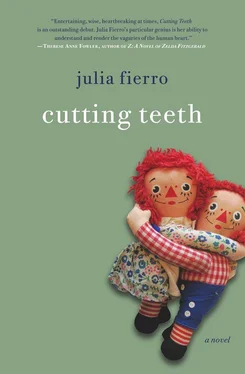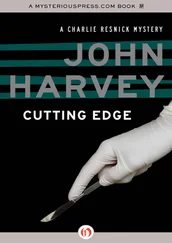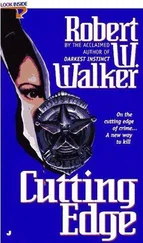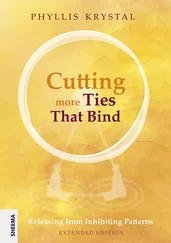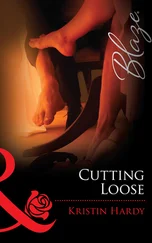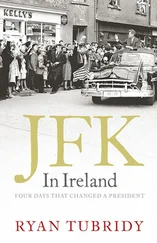Stop, she told herself, willing herself into the right now, into mindful presence, which is what Leigh’s nanny, Tenzin, a Tibetan Buddhist, had taught her.
“Too much worrying not good for mommies,” Leigh imagined Tenzin saying as she pressed her palms together — pleading or praying, Leigh wasn’t sure which. “And worrying not good for mommies’ babies either.”
Now, now, now, Leigh chanted, in sync with the baby’s sucking.
She’s a Tibetan peace activist seeking U.S. asylum, Leigh had told the mommies four months ago when she had first hired Tenzin.
Wow, they had said, how interesting.
As if it were Leigh who was special.
She was relieved that her husband Brad had gone away that weekend. Giving her the excuse to book Tenzin for the trip to the beach house. Brad had been a pill since the stock market slumped three weeks ago, and Leigh had urged him to get away. Finally, he had arranged a four-day “man-cation” golfing in North Carolina with his three older brothers. Brad had openly disapproved of the weekend at Nicole’s. Only because Tiffany was there, Leigh thought. He’d become suspicious — jealous even — of the time Leigh spent texting with Tiffany each night. He claimed to have a feeling about Tiffany.
“She’s a slut,” he’d said after a weekend playgroup brunch at their own brownstone, an event orchestrated to include the playgroup parents’ significant others.
Leigh hadn’t bothered to defend Tiffany. The woman did have a stripperesque name, and there was something overtly sensual in the way she swiveled her hips and puffed her lips out cutely. But Leigh was certain Brad was making room for sluts of his own that weekend. A ritual of the Marshall boys’ getaways was the mandatory visit to the local titty bar.
Since Tiffany had introduced Leigh to Tenzin over a year ago — Tenzin’s effortless smiles and girlish laugh filling Leigh’s life, she had needed Brad less and less, a sense of freedom she hadn’t felt in years, not since Chase’s birth almost four years ago.
Never had she imagined that she would rely on Brad as she had in the months after Chase’s birth. After the emergency C-section that had punctuated the failure of her dream birth plan, she had been grateful to Brad, who had taken a monthlong leave from his position at Manning & Lambert, the investment firm founded by Leigh’s father, August Lambert, III. They had strolled around the neighborhood on brisk spring mornings with their blue-eyed blond baby boy. The neighborhood grandmas in their polyester housedresses and slippers had climbed down their stoop steps to ooh and ah over cherubic Chase. God bless him, they said, and Brad had beamed.
But as soon as Chase’s behavior (a term his therapists used) revealed itself before his first birthday, as soon as it became impossible to take him out of the house without an episode (more therapy-speak), Leigh had watched Brad retreat. Once they’d accepted that Chase was likely to have global delays that would affect the rest of his life (and theirs), Brad had emotionally disowned doe-eyed Chase.
Leigh knew Brad found it difficult to admire their son, even when Chase behaved. The first time Chase had sat at the table for an entire meal, instead of wandering around it ( Helen Keller — style, Brad often joked aloud), Leigh had praised Chase, promised him they’d tell his therapists what a good boy he’d been, even served him a small scoop of ice cream for dessert — breaking the no-sugar commandment preached by those same therapists. Brad had sat there quietly, forcing a smile, and later suggested to Leigh that she was “handicapping” the boy by rewarding him for normal behavior. Brad had used the word most outlawed in the coded therapy-speak of the special-needs world. Normal, Leigh thought now as the sun warmed the crown of her head and she let herself drift into half-sleep.
Charlotte had finally surrendered Leigh’s breast, her blond-fuzzed head falling back, her lips parting, her sweet milky breath wafting upward.
And then they returned. A tsunami of whining and whimpering, the half-language/half-grunt speak of children between the ages of three and four.
There were demands of “juice, juice!”
Dimple-cheeked Wyatt and the twins — dark-haired Dash and honey-complexioned Levi — slid to their bellies, grasping for toy cars and trucks.
“Mine, mine!”
Leigh looked for Chase but did not see her son.
She did spot Rip’s son Hank standing a few feet from the door, already whining, “ I want a car too.” Hank’s eyes were swollen with tears. Angry red splotches rouged his plump cheeks.
Hank was sensitive, which created a unique challenge for Leigh — mother of the rough kid, which was how she imagined the other playgroup parents might describe Chase, especially on one of his off days. Her mission was to keep sensory-seeking Chase, with his hug-tackles and impulsive grabbing, away from the sensory-avoidant Hank.
“Aaaaah,” Hank wailed, “I got sand in my eyeball!”
Chase appeared, galloping to where Leigh sat. His freckles seemed to glimmer over his sun-pinked skin.
He exclaimed breathily, “Mommy!” as he jumped in place — his long limbs swinging. Even with his jerky movements, he was stunning. Anyone would think so, Leigh thought. Other mothers, especially her friends on Facebook, where her status updates were all photos of Chase and Charlotte, commented on how Chase should be a model. Get that kid an agent! He needs to be in a J. Crew catalogue! He would totally win that GAP cutest kid contest! She smiled and nodded gratefully in person, or responded with Thanks! We think he’s cute too!; ) on Facebook, not bothering to point out that models had to sit still and follow directions. Not pointing out that Chase could follow through on a task (therapy-speak) only if it was self-directed (more therapy-speak).
“Hi, sweetie,” Leigh said. “Did you have a fun time on the beach?”
Chase’s cheeks were flecked with grains of sand, and when Leigh’s fingers brushed his cheek, he recoiled like a stretched spring.
“Did you have fun at the beach, honey?” Leigh asked again, knowing she wouldn’t get a response. Chase was too excited to hear her. “What did you do? Did you go in the water?” She heard the sugarcoated strain in her voice.
He tugged at his wet swimsuit, and drops of cold water stung her naked calves.
“I can’t do it. I can’t do it,” he moaned.
“Oh-kay,” Leigh said in a slow voice. Chase’s therapists claimed speaking slowly had a calming effect. “Try not to get frustrated.”
She sang a song from his favorite television show as she searched the room for Tenzin.
“Keep trying, keep trying,” Leigh sang quietly. “Don’t give up. Never give up.”
“Don’t! Sing! That! Song!” Chase lifted to the balls of his feet, the tendons in his neck stretching.
“Peepee-making time!” Tenzin sang as she hurried over. She laid one large hand on his back and escorted him toward the bathroom.
If it wasn’t for Tenzin. The thought of life without her nanny blew a bubble of anxiety in Leigh’s chest. Her Tibetan Mary Poppins.
“Thank you, Tenzin,” Leigh called over her shoulder.
She smiled appreciatively because she was grateful for Tenzin, but also just in case any of the other parents were looking. Although they weren’t necessarily people Leigh would call friends, their opinion of her mattered.
The neighborhood mommies’ acceptance of Leigh was the currency that determined status in this new life with little children. Before she had measured her worth by her salary as an art educator, by the success of the benefits she planned, the annual 5k race she organized in honor of her late cousin, who had died from Lou Gehrig’s Disease. And there had been the more superficial successes — her tennis-trimmed body and her rigorous schedule of exfoliation and moisturizing. There was no denying the importance of appearance in the weight of a woman’s worth, she thought, you’d be naïve to think anything else.
Читать дальше
